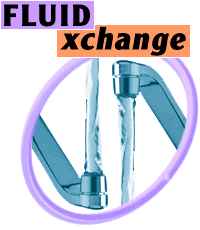Two years ago, a young man referred to as the “Berlin patient” threw AIDS researchers and specialists for a loop.
The patient, who had been recently infected with HIV, experienced ongoing problems with the antiretroviral medications he was taking. He started and stopped his therapy twice. Much to the surprise of researchers, he reverted completely to being HIV-negative status.
Excited by the possibilities this isolated case presented, Italian and US researchers designed a study based on the Berlin patient, hoping to discover how one can trick one’s own immune system into kicking in again, by stopping and starting (called pulsing) combination drug therapies.
According to the medical journal The Lancet, the researchers concluded that “control of HIV infection may require several STIs in some patients and may not be successful in others.”
STIs are Structured Treatment Interruptions, nicknamed drug holidays. And whether they ultimately provide complete freedom from medication or not, they’re not just a flavour-of-the-month treatment option.
A study released in June by the US National Institutes Of Health condones “pulsed antiretroviral therapy as an approach to decreasing toxicity.” That’s good news, considering the elevated liver functions, peripheral neuropathy and metabolic complications (including unusual distribution of fat throughout the body) that often result from continued use of HIV drug therapies. The bottom line is that the more toxic a drug becomes, the more likely it is that its ability to decrease mortality and morbidity will be outweighed by its negative effects on the rest of the body.
In fact, in other areas of medicine such as oncology and rheumatology, “intermittent or cyclical treatment is a standard care for managing the use of some effective, but highly toxic treatments,” according to the Journal Of Natural Medicine. As well, who wants to be permanently enslaved to any drug regime?
I met Mary (not her real name) through the support group Voices Of Positive Women. She has recently finished her second drug holiday.
“My health was okay before going off my meds. I just wanted a change, to get away from it,” Mary says. She adds that going off her meds was “just like a vacation.”
Despite the temporary sense of freedom, Mary’s doesn’t expect to be bidding adieu to her antiretroviral drug therapy anytime soon.
“I had blood work done when I went off them in May. I had blood work done again in August. My viral load went up to 38,000, while before, it was undetectable. My CD4 had gone up to 700 in May. In August it had gone down to 300 after three months. I knew I had to go back on.”
The AIDS Committee Of Toronto referred me to Greg (also a pseudonym). He’s only a few weeks into his first drug holiday. He has several reasons for taking a meds break, but the first thing he mentions is the change in his face.
“I lost a lot of fat under my eyes. I see a lot of people [taking the cocktail] who have that face. Also, I was getting exhausted after three years of taking the drugs. Even though I was on the Cadillac of cocktails [just twice a day, with or without food], I was having trouble swallowing.”
Greg was also dispirited by the effect of the meds on his libido.
“When I first started [on antiretroviral medication] I told my doctor, ‘I think this is a conspiracy.’ My sex drive had gone way down.”
Even Viagra was of limited help. “I would get these hard-ons, but couldn’t come when I wanted to.” And the unreliability of his erections was having an effect on his self-esteem.
“The condom would fall off,” he says. “When that happens, you become insecure about your performance. You end up feeling a lot of negativity.”
After only one week of his drug holiday, Greg says that he wakes up in the morning “with outrageous hard-ons.”
Greg doesn’t expect dramatic results from his first drug holiday. However, he does hope that his face will reclaim its usual contours.
“If you nip it in the bud, it won’t get as bad as some others. Hopefully, I’ll go back on more invigorated.”
Greg and Mary both have few expectations from Structured Treatment Interruptions. Which is appropriate, considering that the research is still in its infancy. Most studies are still relatively uncontrolled and carried out for short periods of time.
And the possibility of drug regimes designed specifically with treatment interruptions in mind remains an exciting one that has yet to be addressed.

 Why you can trust Xtra
Why you can trust Xtra


